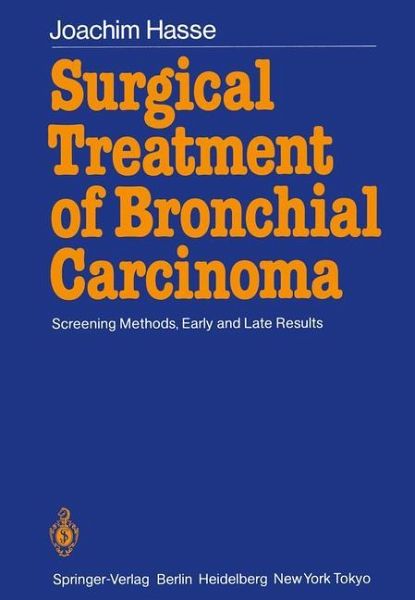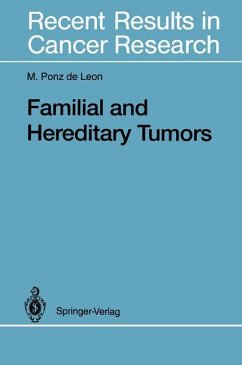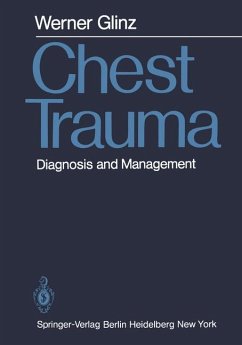
Surgical Treatment of Bronchial Carcinoma
Screening Methods, Early and Late Results
Übersetzung: Telger, T. C.
Versandkostenfrei!
Versandfertig in 1-2 Wochen
77,99 €
inkl. MwSt.

PAYBACK Punkte
39 °P sammeln!
If a consecutive series of patients with lung cancer is followed up until the decision is made about therapy, it emerges that the role of surgery is quite small. Only a very limited proportion will ultimate ly qualify for rationally conceived surgical therapy; most patients are inoperable. In a series of 397 patients investigated at our hospi tal, 78% were inoperable on the basis of preoperative evaluation and a further 3% proved nonresectable at thoracotomy; therefore, only 19% were suitable for resection. On the other hand, surgery is still thought to offer the best, if not the only realisti...
If a consecutive series of patients with lung cancer is followed up until the decision is made about therapy, it emerges that the role of surgery is quite small. Only a very limited proportion will ultimate ly qualify for rationally conceived surgical therapy; most patients are inoperable. In a series of 397 patients investigated at our hospi tal, 78% were inoperable on the basis of preoperative evaluation and a further 3% proved nonresectable at thoracotomy; therefore, only 19% were suitable for resection. On the other hand, surgery is still thought to offer the best, if not the only realistic chance of cure. The question "operable or not?" is therefore of vital importance for the individual patient. The answer to this crucial question must be based on valid guidelines for pa tient selection and preoperative evaluation, and it should be clearly defined what extent of resection is necessary in order to realize any curative intention. In 1972 a thorough analysis of the literature revealed that re section of bronchial carcinoma - although 40 years old - was being undertaken with very variable indications. There was hardly any systematic staging, and assessment of results was hampered by the fact that most communications in the literature were based on retrospective analysis.












